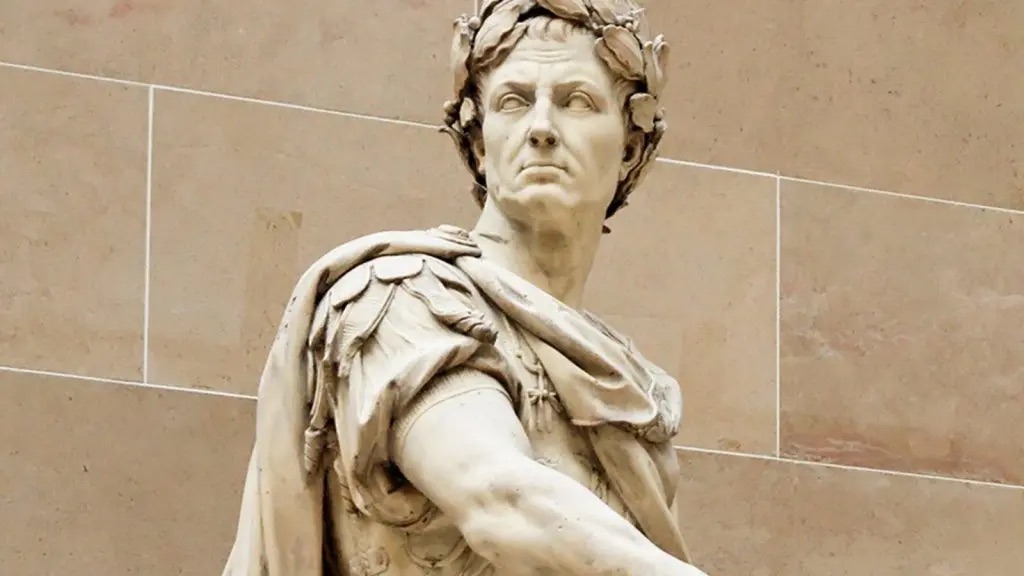
Julius Caesar
Gaius Julius Caesar
Brilliant general, genius politician, and master orator whose eloquence shaped the final decades of the Roman Republic.
Julius Caesar: A Short Biography
Julius Caesar is a man whose talents as an orator were matched only by his genius as a military commander and politician. Born into an ancient patrician family in 100 BC, Caesar came of age during the Roman Republic's most turbulent period, when traditional institutions struggled to govern a vast empire.
His early career followed the conventional path of Roman aristocrats: military service, legal advocacy, and gradual advancement through the cursus honorum. However, Caesar possessed extraordinary abilities that set him apart from his contemporaries. His oratorical skills were renowned throughout Rome, earning praise even from rivals like Cicero, who called him one of the most eloquent speakers of their generation.
Caesar's speeches in the Senate and courts established his political reputation long before his military conquests in Gaul made him famous throughout the Roman world. His intervention in the Catiline conspiracy debate of 63 BC demonstrated both his rhetorical mastery and his political courage. These qualities would define his remarkable career until his assassination in 44 BC.
As a Public Speaker
Caesar's oratorical style combined intellectual precision with emotional power, making him one of Rome's most formidable speakers. Ancient sources consistently ranked him among the greatest orators of his age, alongside Cicero and Hortensius. What distinguished Caesar was his ability to remain calm and logical even in the most heated debates, using reason as his primary weapon of persuasion.
His speeches were noted for their clarity of expression and elegant Latin prose. Unlike some orators who relied heavily on emotional appeals or theatrical gestures, Caesar built his arguments through careful logic and extensive historical knowledge. He could cite precedents, analyze legal complexities, and anticipate objections with remarkable skill.
Caesar's delivery was reportedly commanding without being bombastic. He possessed what Romans called gravitas, which is a dignity of bearing that commanded respect from audiences. His speeches often began with philosophical observations before moving to specific political arguments, a technique that established his authority as a thoughtful statesman rather than a mere partisan.
Perhaps most remarkably, Caesar could adapt his speaking style to different audiences and occasions. In the Senate, he favored reasoned argument and constitutional precedent. Before popular assemblies, he could employ more direct appeals and vivid imagery. This versatility made him effective across all venues of Roman public life.
Notable Speeches
A chronological collection of Julius Caesar's most significant orations
Funeral Oration for Julia
Caesar's laudatio for his aunt Julia, widow of Marius, which boldly defended his family's connection to the controversial general and established his populist credentials.
On the Punishment of the Catiline Conspirators
A masterful deliberative speech advocating clemency for the Catiline conspirators and warning against dangerous precedents in times of crisis.
Read MoreDefense of his Consulship
Caesar's response to charges that his consulship was conducted illegally, defending his land reform legislation and political methods.
Address to the Senate on Crossing the Rubicon
Caesar's justification for bringing his army across the Rubicon River, marking the beginning of civil war and the end of the Republic.
Legacy & Impact
Political Oratory
Caesar's speeches set new standards for deliberative oratory in the Roman Senate. His technique of combining philosophical principles with practical politics influenced generations of Roman speakers. His intervention in the Catiline conspiracy debate demonstrated how skillful rhetoric could reshape political discussions and force opponents to grapple with constitutional principles. Modern political speakers still study his methods for building logical arguments and maintaining dignity under pressure.
Literary Excellence
Beyond his political speeches, Caesar's literary works, particularly his Commentaries on the Gallic Wars, established him as one of Latin literature's master prose stylists. His clear, precise writing influenced Roman education for centuries and remains a model of lucid exposition. Renaissance humanists praised his elegance of expression, and his works became fundamental texts in classical education throughout Europe.
Historical Transformation
Caesar's career marked the transition from the Roman Republic to the Empire, fundamentally altering the course of Western civilization. His political speeches and actions demonstrated both the power and the limitations of republican institutions when faced with extraordinary individuals. His legacy influenced concepts of leadership, the relationship between military and civilian authority, and the role of charismatic figures in history. From Napoleon to modern political leaders, many have claimed to follow the Caesarian model.
Notable Quotes
It becomes all men, conscript fathers, who deliberate on dubious matters, to be influenced neither by hatred, affection, anger, nor pity.
— On the Punishment of the Catiline Conspirators, 63 BC
All precedents productive of evil effects have had their origin from what was good; but when a government passes into the hands of the ignorant or unprincipled, any new example of severity... is extended to those that are improper and undeserving of it.
— On the Punishment of the Catiline Conspirators, 63 BC
Thus in the highest position there is the least liberty of action; and it becomes us to indulge neither partiality nor aversion, but least of all animosity.
— On the Punishment of the Catiline Conspirators, 63 BC
For assuredly there was greater merit and wisdom in those, who raised so mighty an empire from humble means, than in us, who can scarcely preserve what they so honorably acquired.
— On the Punishment of the Catiline Conspirators, 63 BC
Discover More Great Orators
Explore our collection of speeches from history's most influential speakers.